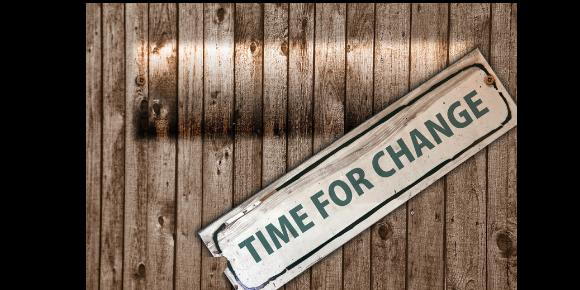
I have a confession to make. I used to bite my nails. Not the occasional, demure, gentle nibble; this was full-on gnawing and chewing. If I wasn’t satisfied afterwards I might go after the cuticles. This often happened outside of conscious awareness when I was in graduate school; I might be in class, or meeting with a client, and find that my hand had traveled to my mouth and I was obliviously chomping away. I had tried (what I thought at the time was) everything. I even used that nail polish that has a terrible taste. Once I began to actually enjoy the taste of the bitter varnish, I knew that things needed to change, but how? How do you change a habit? Read on to learn more!
- Choose ONE habit to work on at a time: It’s 12:01 on New Year’s Day and you’re thinking about all of the ways that this year will be different. This year you will quit smoking, floss more, lose 10 pounds, start meditating, and pay more attention during your 10:00am staff meeting. You’ve already set yourself up for failure. Adopting a go big or go home attitude towards change is overwhelming, and at best, you’ll charge forward and stop after your immediate attempts at changing everything about yourself fail to work, or at worst, you’ll become so overwhelmed with the enormity of the project before you that you’ll quit before you even get started. To avoid this trap, choose one habit to focus on. Success breeds success, and you’ll be more motivated to tackle other challenges afterwards!
- Make the unconscious, conscious: Many habits that folks would like to change have become so ingrained that they take place largely outside of conscious awareness. Perhaps you light up a cigarette as soon as traffic begins to build up during your commute, or you head straight to the fridge and mindlessly pull things out as soon as you return home from work. The first step towards habit change is becoming more aware of the habit in the first place. A simple way to do this is through self-monitoring. Once you’ve chosen the habit you would like to change, start writing down each time you find yourself engaging in it. This will help to make you more aware of the situations, thoughts, and feelings that are likely to trigger your habit, and more aware of when you engage in it.
- Set reasonable goals: I know that you want to wake up on Monday morning at 5am, go to the gym for an hour, and then repeat every single day for the rest of your life, but if you’re picking up on a theme at this point, it’s slow it down! Trying to change too quickly is a sure fire way to burn out on your self change project. Choose reasonable, objective goals. If you’ve not been active for some time, perhaps a 10 minute walk around the block three times in the next week is a better place to start.
- Practice self reward: Let’s face it, when we’re not happy with ourselves, we often don’t treat ourselves very well. As humans, we tend to think we’ll get better results from punishing ourselves for our (perceived) bad behavior, rather than rewarding ourselves for positive behavior. Change is hard. Reward yourself for the positive steps you’re taking. Not only will you create incentive for more change, but treating yourself well will lead to feeling better about yourself, which will create more motivation for change!
- Make meaningful changes based on the function of your habit: Once you’ve mastered the basics outlined above, take a real look at when, where, and why your habit happens. Do you chew your nails every time you’re stuck in traffic? Does being stuck in traffic cause you stress and anxiety? Once you’ve been able to figure out what purpose your habit serves (and you wouldn’t be doing it if it didn’t), you can begin to replace it with more helpful behaviors. Maybe an audiobook or some deep breathing exercises might help with that stressful commute, and take some of the stress off of your nails?
- Be open to professional help: Changing any habit is hard, but some habits are more amenable to going the solo route than others. If you struggle with drug addiction, eating disordered behaviors, or self harm (not an exhaustive list) these are habits that will benefit from professional assistance to guide you through the change process.
I hope these steps are helpful to you as you embark on your habit changing journey! Have you successfully changed a habit? How did you do it? Comment below!
Dr. Scrivani specializes in the treatment of anxiety and related disorders, and provides tele-mental health services to residents of New York and Florida. Call (888) 535-5671 or email [email protected]. Visit Dr. Scrivani’s iTherapy webpage to learn more.